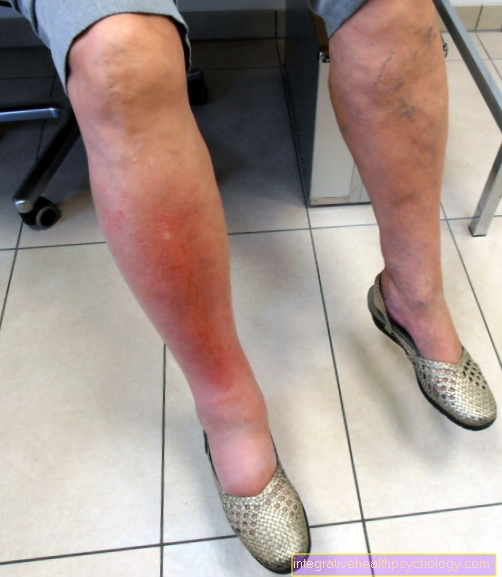International Olympic Committee
Synonyms
IOC, IOC,
English: international olympic committee
introduction

Known in Germany as the iinternational Olympic Komitee with the common English abbreviation (IOC), it is a non-governmental association with the aim of planning, organizing and implementing the Olympic Games The modern era. The founder Pierre de Coubertin moved the IOC headquarters in Switzerland to Lausanne in 1915, which turns it into an association with an entry in the commercial register of the Swiss civil code. Since 1981, the Swiss Federal Council has given the international Olympic Committee the status of an international organization under Swiss law and granted corresponding tax privileges. The IOC reserves the patronage of the Olympic Games and claims all applicable rights to existing symbols in the content of the Olympic Games (Olympic rings, etc.)
Are the official languages of the organization English and French.
origin
The IOC was founded on June 23, 1894 in Sorbonne in Paris, as the staunch philanthropist Pierre de Coubertin tried to bring nations all over the world closer through a joint sporting festival. He, who saw himself as an educational reformer, recognized the opportunity in a revival of the ancient Olympic Games through steadily growing internationalization. 78 delegates from 37 sports federations in 9 countries decided on the first modern Olympic Games in 1896, which took place in Athens. The founding committee comprised 13 men from 11 countries. The first president of the IOC became the Greek delegate Dimitrios Vikelas, a man of letters representing the first venue. Vikelas handed over the office after the games Pierre de Coubertin as representative of the 2nd Olympic Games in Paris. Coubertin retained the presidency as a permanently elected member until 1925, after W. Sloane resigned the presidency with regard to St. Louis.
A German member is to be sought in vain in the founding staff of the IOC, since Coubertin was also influenced by his compatriots due to the constant conflicts between France and Germany. The entrepreneur was the first German member of the IOC Willibald Gebhardt, in January 1896 in preparation for the Athens Olympic Games.
The Olympic Thought
Pierre de Coubertin wanted to make a contribution to the building of a peaceful and just world by reviving the Olympic Games. With the idea of international understanding through sporting fair play, the conveyance of values and solidarity, his philanthropic worldview was converted into practical action. The term Olympism introduced by him was coined and characterized by physical, psychological and spiritual strength in a form of peaceful competition. Numerous sporting organizations have joined this Olympic movement over the years.
The most important tasks of the Olympic movement include mediation between nations, the fight against discrimination and others, as well as the fight against targeted doping in sport, which has become one of the greatest problems of professionalized sport in recent years and decades.
The Olympic Charter
The Olympic Charter comprises 64 articles in 5 chapters. It is a clearly defined set of rules that describes the course of the Olympic Games and provides the international sports associations with binding guidelines.
For the first time in 1924 at the IOC meeting in Rome, these fixed regulations and resolutions were systematically summarized in writing. In terms of content, the Olympic Charter defines a kind of code of conduct with ethical principles.
The annual meeting
The annual ordinary meeting of all IOC members is legally the most important organ of the IOC. Both the president and the executive, all members and honorary presidents are re-elected. Resolutions are also made on the Olympic Charter. The President, or a third of all members together, is / are authorized to call an extraordinary meeting.
There is particular interest in the choice of venues for future Olympic Games. Each member has one vote. However, if a country is still up for election, the country representative may not vote.
IOC crises
Since the International Olympic Committee came into existence, there have been isolated, isolated conflicts. When it was founded, it was predominantly the boycott of individual countries towards the games. Just four years after it was founded, the facade of the IOC began to crumble when the games in 1900 and 1904 were a single disappointment. The first world war forced Coubertin to move the seat of the International Olympic Committee to Switzerland in order to save the Olympic Games from being destroyed. More decisive than the external crises, however, is the internal crisis of 1998, when it became known that several IOC members were bribed at the award ceremony for the 2002 Winter Olympics in Salt Lake City. As a result, 11 members of the IOC had to resign, four more received warnings. In March 1999, an ethics and reform commission was convened to examine the pending cases.
The first visible consequences of the scandal in 1999 were the disclosure of finances, increased transparency and the public at the meetings. The proposals of the reform commission were accepted by the general assembly of the IOC on December 10th and 11th, 1999 and the Olympic charter was changed as a result.
Renewals
The newly elected members will serve for eight years, but can be re-elected for eight years and must resign after the age of 70 at the latest. No country can represent more than one member in the IOC.
Since 1999, the Executive Committee has consisted of 15 members, a President, a Vice-President and an athlete representative. The commission meets eight times a year and decides on any changes to the Olympic Games.
The composition of the IOC has changed as follows:
- 70 personal members
- 15 Olympic athletes (11 from Summer Games and 4 from Winter Games)
- 15 representatives of IF's (sports associations)
- 15 representatives of the NOKs (National Olympic Committee)
President of the IOC
- Dimitrios Vikelas (1896)
- Pierre de Coubertin (1896-1925)
- Baillet - Latour (1925-1942)
- Siegried Edström (1942-1952)
- Avery Brundage (1952-1972)
- Lord Killanin (1972-1980)
- Luan- Antonio Samaranch (1980-2001)
- Jaques Rogge (2001- present)





























